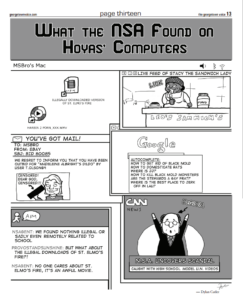Every October 25, my Facebook experiences its annual flood of wall posts. This inundation of birthday wishes from friends, family, distant cousins, Sunday school teachers, past hookups, and people I just plain forgot about is something only Facebook could facilitate. But another event on that day spawns an almost equally predictable outpouring of well-wishers—the death of my soccer teammate and friend, Will Wardrip.
Two years ago Will and three friends were driving, sober, down a steep grade in the foothills of suburban San Diego when Will’s friend lost control and flipped the car. Will, who wasn’t wearing a seat belt, was catapulted out of the front windshield and crushed underneath the car.
My entire community was rocked. Will was the kind of kid that everyone loved: smart, athletic, funny, popular, and with a smile that could light up a room. In the wake of his death, our school canceled classes, vigils were held at the beach, and the funeral was packed to the brim with anyone who had ever met Will, except me.
I watched from afar, from my freshman dormitory on the other side of the country. I had just gotten back from my birthday dinner at Tombs when my mom called and broke the news. I was shell-shocked. I did the only thing I knew how to do—I cried. Bawled, actually. And then I turned to Facebook for more.
Facebook was my only window into the pain of my community, a looking glass through which I could catch vague glimpses of the mourning. On Will’s wall I found accounts of the accident, including articles from area newspapers and video clips from local news stations. I chatted with classmates of mine who had known Will. I commented on mutual photos of us goofing around on soccer initiation night, and, through videos his mom had tagged Will in, relived Will’s short, but sweet, life. Facebook made it easy to mourn.
On October 26, 2009 (just one day after Will’s passing), Facebook Head of Security Max Kelly explained in a blog post that in response to the death of a fellow Facebook employee, Facebook had “created the idea of ‘memorialized’ profiles as a place where people can save and share their memories of those who’ve passed.” A memorialized profile can receive wall posts, photo tags, and video messages, but cannot be accessed by those other than friends, is unsearchable, and is wiped of all personal information. In the same post, Kelly reflected that “as time passes, the sting of losing someone you care about also fades but it never goes away.” Memorialized pages are the salve to that sting.
It’s been two years since Will died, and, I must admit, Facebook has changed the way I remember his death. Each year as the “Happy Birthdays” roll in alongside the “I miss you Wills,” I take the time to reminisce about Will’s legacy, how he’s taught me to cherish the people around me, to live in the moment, and never to take anyone for granted. I scan through old photos. I post thoughtful messages on his wall. I watch old videos that make me laugh and cry at the same time. Remembering Will is easy and makes me feel good. But is that what mourning is supposed to be about?
Facebook exists to facilitate the relationships we already have. With a little effort and something called a telephone or, God forbid, mail, you could share photos, reconnect with old friends, and learn about people’s days. But Facebook has made all of this much easier, more convenient, and simpler. No longer does it take a significant sacrifice to ask your friend how they’re doing, just look at their profile for a few seconds and suddenly you’re reconnected. Death is the same way. Facebook allows me to conveniently express my grief at my leisure, without any real cost on my part.
But some things aren’t supposed to be easy. Death is hard. Death sucks. Facebook has made it so that instead of doing the tough things like laying flowers on Will’s grave, getting coffee with his grieving mom, or calling up Will’s friend who lost control of the car that day, I can comfortably express my grief online. Love is sacrifice, but Facebook has eliminated the need for any sacrifice.
So while I appreciate how Facebook has changed our lives, I dislike how it’s changed our deaths. That’s why this year I’m remembering Will the old fashioned way: calling friends, looking through old yearbooks, and taking the time to meditate about what life means to me. Rest in peace, Will Wardrip. I’ll remember you forever, Facebook or not.



